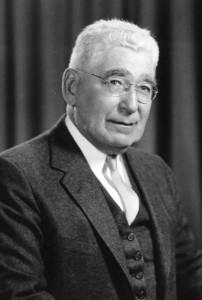The Freehof Blog exists to encourage discussion of halakhic issues from a liberal perspective. We want it to serve as a platform for reflections, arguments, suggestions, and debate as to the enduring connections between Reform Judaism and the halakhic tradition. We are interested in what halakhah has to teach us and in what we can contribute to its development. We will consider the ways that we progressive Jews might apply the principles of halakhah to all aspects of Jewish concern: ritual practice, ethics, public policy, and more. In fact, we’re likely to write about anything and everything that has to do with progressive Judaism and halakhah. For those who share these interests, we hope this space will become a place of Jewish intellectual and religious community.
We welcome comments to our posts. Argument is the point of our blog, and we invite our readers to help us clarify and refine the ideas we express here. We want that argument to be forthright, sharp, and intellectually honest; otherwise, it can’t do its job. It should not, however, descend to personal insult and group defamation. No abusive language, please.
We also welcome guest posts that fall within our subject area. If you’re interested in submitting a post, please contact Mark Washofsky, the moderator of the blog, at mwashofsky@huc.edu.
Our blog is hosted by Hebrew Union College-Jewish Institute of Religion and administered by the following members of the Freehof Institute of Progressive Halakhah:
Joan S. Friedman, Associate Professor of History and Religious Studies at the College of Wooster, was ordained at HUC-JIR (New York) in 1980 and has been a regular or corresponding member of the CCAR Responsa Committee since 1995. Her book, “Guidance, Not Governance”: Rabbi Solomon B. Freehof and Reform Responsa, based on her doctoral dissertation, was a 2013 National Jewish Book Award Finalist.
Walter Jacob is President of the Freehof Institute, President and co-founder of the Abraham Geiger College at Potsdam University, a former President of the Central Conference of American Rabbis, and rabbi emeritus and senior scholar at Congregation Rodef Shalom in Pittsburgh. He served as chair of the CCAR Responsa Committee from 1976-1990. Among his numerous publications are three collections of Reform t’shuvot: American Reform Responsa (1983), Contemporary American Reform Responsa (1987), and Questions and Reform Jewish Answers (1992).
Amy Scheinerman is the hospice rabbi in Howard County, Maryland, is a scholar-in-residence, and teaches in a variety of venues. She is a past president of the Baltimore Board of Rabbis and the Greater Carolinas Association of Rabbis, and has served on the Board of the Central Conference of America Rabbis; she is currently a member of the Responsa Committee of the CCAR, and serves as editor of the Torah Commentary column of the CCAR newsletter. She has served Conservative, Reform, and unaffiliated congregations.
Danny Schiff, rabbi and Ph.D., is the Federation Scholar at the Jewish Federation of Greater Pittsburgh. He is also the founder and president of MOJI, the Museum of Jewish Ideas, and is a noted teacher and researcher in Jewish ethics. Danny splits his time between Pittsburgh and Jerusalem.
A. Brian Stoller is associate rabbi of Congregation BJBE in Deerfield, IL and is studying for his doctorate at HUC-JIR with a focus on modern halakhic literature. Still early in his rabbinical and academic career, he has authored several articles in the area of Reform Judaism and halakhah, including the Introduction to Omer: A Counting (CCAR Press, 2014) and a forthcoming piece in the CCAR Journal on intermarriage and the Reform rabbinate.
Mark Washofsky, moderator of the blog, is the Solomon B. Freehof Professor of Jewish Law and Practice at HUC-JIR and chair of the CCAR Responsa Committee. He publishes in the field of Jewish legal theory. He is the author of Jewish Living: A Guide to Contemporary Reform Practice, a comprehensive summary of the halakhic literature of the American Reform movement, and the editor of Reform Responsa for the Twenty-First Century, the most recent printed collection of Reform responsa.
